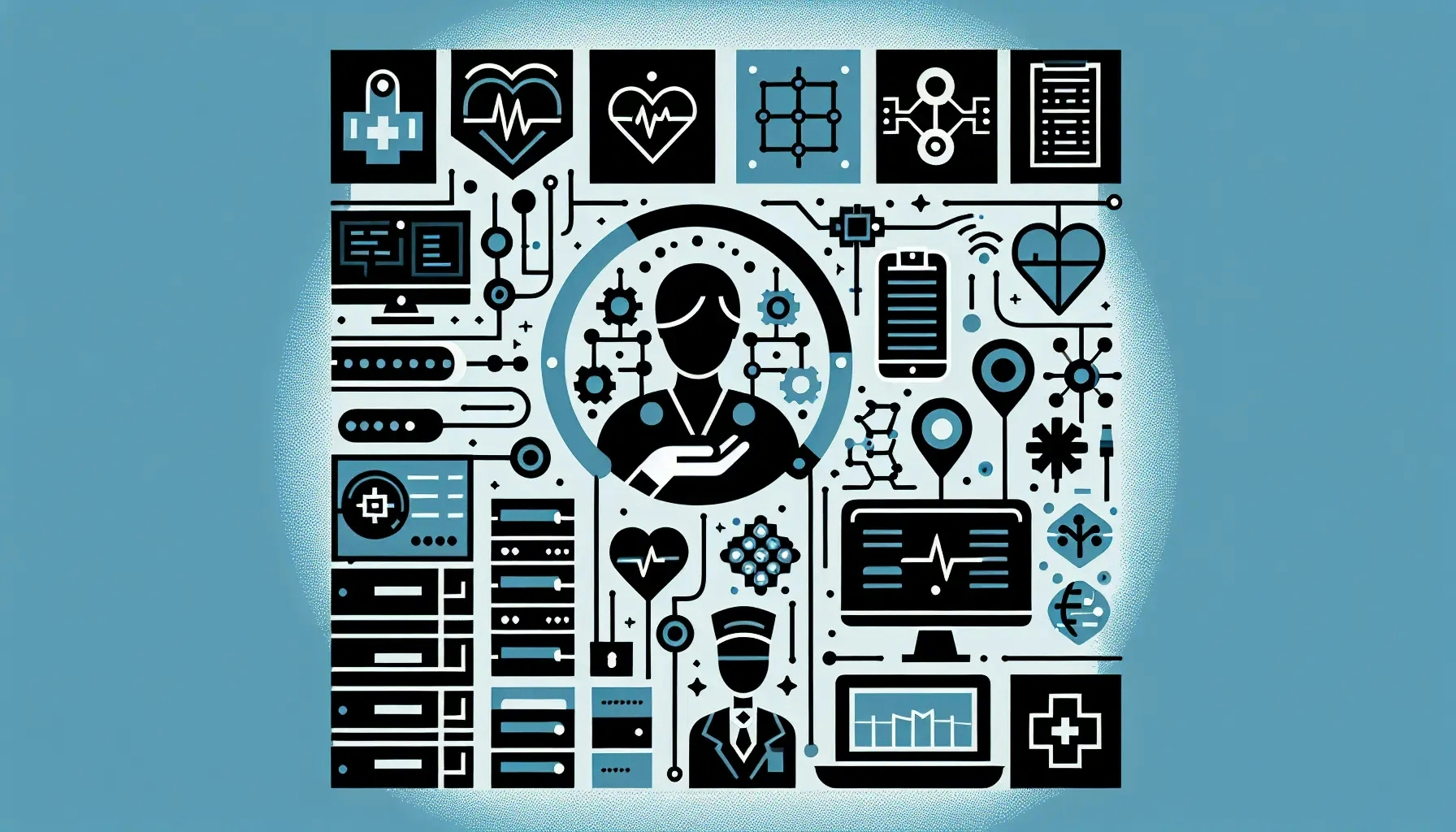The world of healthcare is evolving, and medical informatics is at the forefront of this change. This field, which combines healthcare, computer science, and information science, is rapidly growing and offers a wealth of opportunities for those interested in both medicine and technology. This blog post will guide you on how to start a career in medical informatics, providing you with the knowledge and tools needed to embark on this exciting journey.
Understanding Medical Informatics
Medical informatics is a multidisciplinary field that uses health information technology to improve patient care. It involves the application of computer science, information science, and healthcare to design and build systems for the management of medical information.
The field is broad and encompasses several areas, including clinical informatics, nursing informatics, and public health informatics. Clinical informatics focuses on systems that support patient care, such as electronic health records (EHRs) and computerized physician order entry (CPOE) systems. Nursing informatics, on the other hand, emphasizes the use of technology to improve nursing practice, while public health informatics uses data to improve public health outcomes.
Medical informatics professionals play a crucial role in healthcare. They design, implement, and manage health information systems, ensuring that healthcare providers have access to accurate, up-to-date patient information. They also work to improve the efficiency and quality of healthcare delivery through the use of technology.
Educational Requirements for a Career in Medical Informatics
Aspiring medical informatics professionals need a strong educational foundation. A bachelor's degree in a relevant field such as computer science, information technology, or healthcare is typically the first step.
Some universities offer specialized programs in health informatics at the undergraduate level. These programs provide a comprehensive overview of the field, covering topics such as health data management, health information law and ethics, and health information systems.
After earning a bachelor's degree, many individuals choose to pursue a master's degree in health informatics. These programs delve deeper into the field, offering advanced coursework in areas such as clinical informatics, data analytics, and health information systems design and implementation.
Certifications can also enhance your credentials in the field of medical informatics. The American Health Information Management Association (AHIMA) and the Healthcare Information and Management Systems Society (HIMSS) offer several certifications for health informatics professionals.
Gaining Relevant Experience
In addition to education, practical experience is crucial in the field of medical informatics. Internships and entry-level positions can provide valuable hands-on experience with health information systems.
Consider seeking opportunities in hospitals, clinics, or health information technology companies. These experiences can help you understand the practical applications of medical informatics and provide you with a chance to apply the concepts you've learned in your coursework.
Volunteering can also be a great way to gain experience. Many healthcare organizations need volunteers to help manage their health information systems. This can provide you with a chance to gain practical experience while also giving back to your community.
Building a Professional Network
Networking is an essential part of building a successful career in any field, and medical informatics is no exception. By connecting with other professionals in the field, you can learn about job opportunities, stay up-to-date on industry trends, and gain valuable insights from experienced professionals.
Professional organizations such as AHIMA and HIMSS offer networking opportunities through conferences, seminars, and online forums. These organizations also provide resources for continuing education, which can help you stay current in this rapidly evolving field.
LinkedIn can also be a valuable networking tool. By joining groups related to medical informatics, you can connect with other professionals, participate in discussions, and learn about job opportunities.
Staying Current in the Field
Medical informatics is a rapidly evolving field, and staying current is crucial for success. This involves keeping up with advancements in technology, changes in healthcare regulations, and trends in data management.
Continuing education is one way to stay current. Many professional organizations offer webinars, workshops, and courses that can help you keep your skills sharp and your knowledge up-to-date.
Reading industry publications can also help you stay informed. Journals such as the Journal of the American Medical Informatics Association (JAMIA) and Healthcare Informatics publish articles on the latest research and developments in the field.
Embarking on Your Career in Medical Informatics
Once you've gained the necessary education and experience, and built a strong professional network, you're ready to embark on your career in medical informatics.
Job opportunities in this field are diverse. You could work in a hospital or clinic, managing the organization's health information systems. Alternatively, you could work for a health information technology company, designing and implementing new systems.
Regardless of the path you choose, a career in medical informatics offers the opportunity to make a significant impact on patient care. By leveraging technology to improve the management of health information, you can contribute to the efficiency and effectiveness of healthcare delivery.
Launching Your Career in Medical Informatics: The Journey Begins
Starting a career in medical informatics is a journey that requires education, experience, networking, and a commitment to staying current in the field. By following the steps outlined in this blog post, you can navigate this journey successfully and make a significant impact in the world of healthcare. The field of medical informatics is ripe with opportunities for those who are ready to embrace the challenge.

